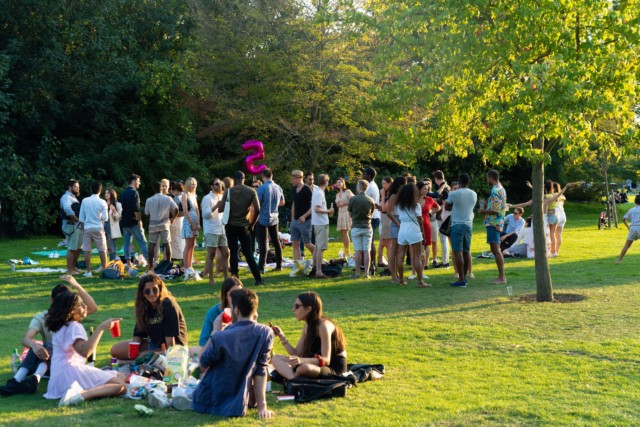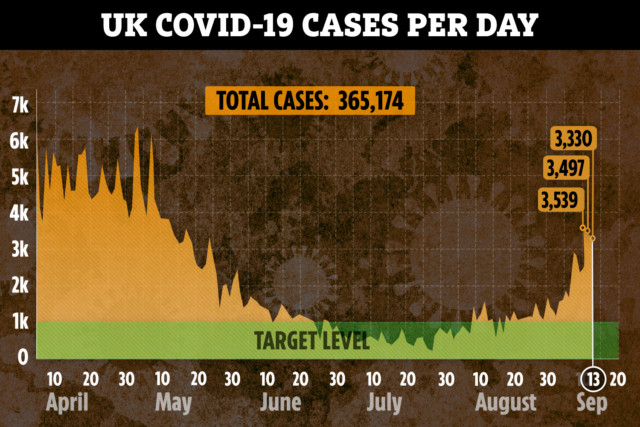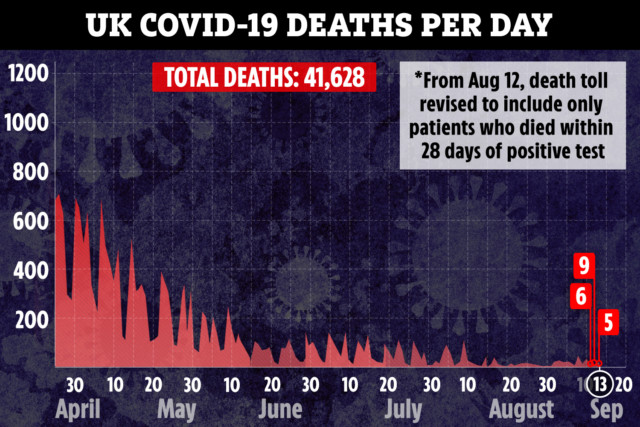BRITS should snitch on their neighbours if they are breaking the new coronavirus rule of six, the policing minister has said.
Kit Malthouse said this morning people who spy someone doing the wrong thing by having more than six people over should call the cops.


He told BBC Radio 4: “What we’re hoping we’ll see for the rule of six is what we saw for the whole of lockdown which is extremely high compliance.
“In the end we all have to recognise that we have an individual duty towards our collective health and we hope that view will prevail.
“There is the non-emergency number that people can ring and report issues if they wish to.”
The new rules to stop the spread of coronavirus mean Brits can only meet up in groups of six people – or face £100 fines if they are broken.
But in Scotland and Wales kids don’t count towards the total numbers, meaning family gatherings haven’t been totally ruled out thanks to the new law.
Mr Malthouse said during lockdown there was a surge from people spying on their neighbours reporting them to the police for breaking restrictions.
He said: “If people do think there has been a contravention, then that option is open to them.
“If they are concerned and they do see (people breaking the rule) they should (ring the non-emergency number).”
It comes as:
- The new rule of six comes into force today making breaking limits on social gatherings illegal
- Priti Patel warns people who break the new rule of six will be given criminal records
- Pubs face 10pm curfews as partying young people forget coronavirus rule
- 4.5 million Brits could be asked to shield again if coronavirus cases rise again
National Police Chiefs Council Chairman Martin Hewitt said people should try and talk to their rule-breaking neighbours before calling the cops.
He said: “Once these rules and regulations are enacted, they are the law. If people are deliberately breaking the law, we would expect members of the public to take responsibility to report that.
“We have seen over the 6 months we have seen a number of points, particularly when new regulations have been brought in, that we get calls to police in and we will respond to that.
“But we all have to take responsibility, as families, as individuals as businesses we all have to take responsibility.”
The fines for breaking the rules can skyrocket up to £3,200 if people continue to ignore the limit on social gatherings.
And Home Secretary Priti Patel said troublemakers would be handed a criminal record if they ignore the fines.
Anyone meeting in a group of more than six indoors or out are now breaking the law.
Home Office officials say those who refuse to accept £100 on-the-spot fines will be arrested and taken to court.
A source said: “Those who repeatedly break the rules need to know they could face a criminal record.”
Pubs, bars and restaurants must also take the details of punters or risk £1,000 fines.
Writing in HOAR, Ms Patel, said: “These new rules are easier to understand and easier for the police to enforce.
“I know that, as part of our national effort, the law-abiding majority will stick to these new rules. But there will be a small minority who do not, and the police have the necessary powers to take action against them.
“This disease is deadly and that is why it is right that the police enforce where people break the rules.”
The full-text of the new laws were published just 23 minutes before midnight when the rules came into force.
And Tory MPs and peers last week blasted the rules for ruining family gatherings.
Steve Baker demanded the PM shake-off the “grinch” restrictions after Scotland and Wales excluded kids from the 6-person limit.
Sir Graham Brady, chair of the 1922 Committee, told Times Radio: “It’s peak infringement of people’s liberties and their right to a normal family life.
“You could mitigate quite considerably by excluding younger children, the people we know who are least likely to be affected by the virus, less likely to spread the virus.”
LOCKDOWN RISK
The new rules come as Government scientific adviser Peter Openshaw has warned the rise in infections will “inevitably” result in more “hospitalisations and deaths”.
Prof Openshaw said the nation had to get a grip or risk returning to a “hard lockdown”.
He said: “It starts as a trickle but if you don’t do something about it, it can turn into a real cascade.”
There has also been an explosion in new cases in 43 care homes prompting a call from the Government for providers to act.
A letter, which was sent on Friday, urges care bosses to “take necessary action to prevent and limit outbreaks”.
Pubs and restaurants could also face a curfew if infections continue to rise.
A source told the Telegraph that the curfew was the “logical next step” for the country if local lockdowns fail to stop the spread of infection.
Bars in Bolton already have to close early in an attempt to curb the rise in cases in the city.
Justice Secretary Robert Buckland told Sky’s Sophy Ridge On Sunday: “I think that as you’ve seen we’ve been very prepared to move quickly where necessary and where the evidence points us.”










